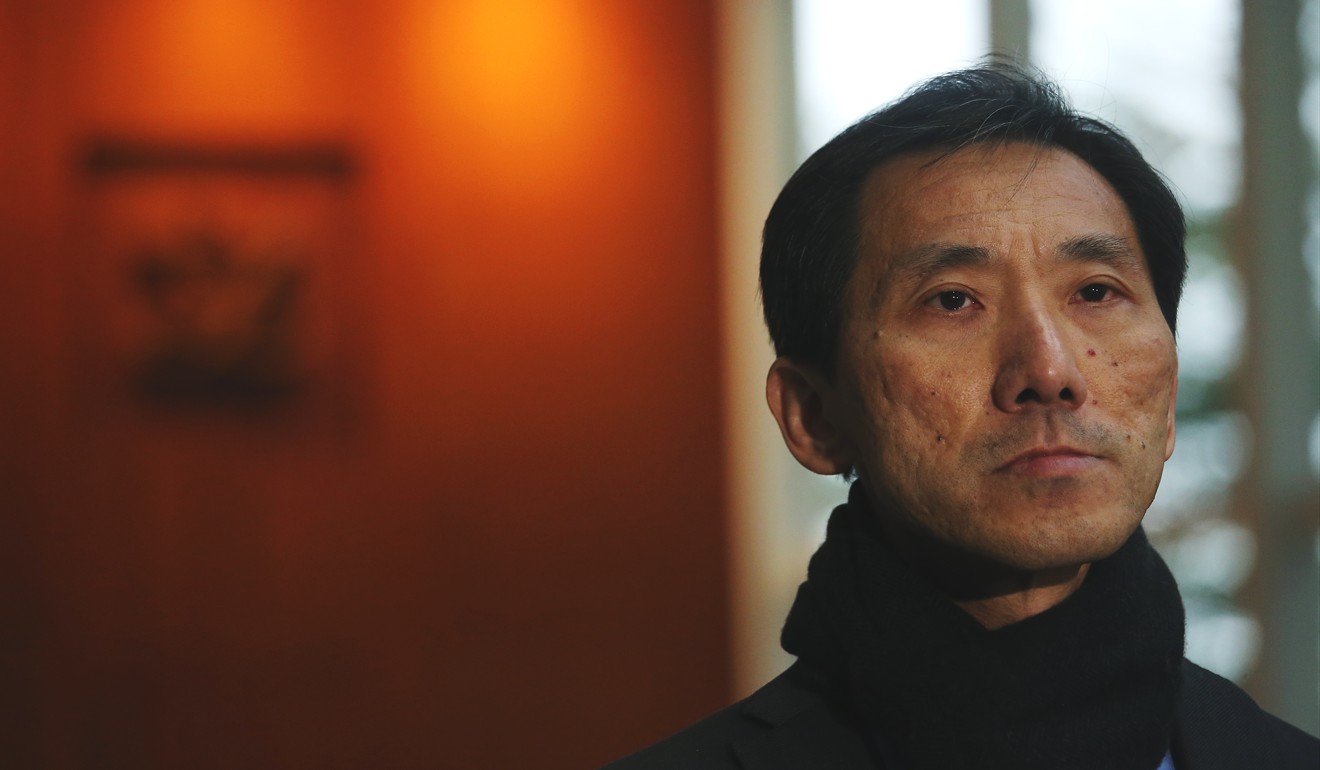
What Agnes Chow’s election ban means for Joshua Wong and youth politics in Hong Kong
The government’s decision to disqualify a 21-year-old pro-democracy activist from the March 11 by-election has far-reaching implications on the city’s political landscape
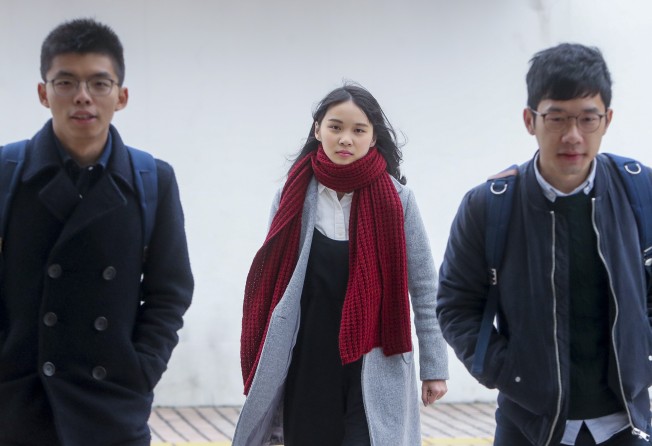
Beneath her dewy, fresh-faced look and somewhat bashful smile, Agnes Chow Ting, 21, is a battle-hardened political savant as far as young Hongkongers go.
The pro-democracy activist was active in a campaign six years ago to force the government to retract a plan to introduce compulsory national education in schools. In 2014, she was at the front lines of the Occupy protests seeking greater democracy.
Recently, she renounced her UK citizenship and put her studies at Baptist University on hold – all in the name of becoming the city’s youngest-ever lawmaker.
Chow was gunning to win the Hong Kong Island seat in the upcoming Legislative Council by-election, where four seats need to be filled.
But last Saturday, she faced her biggest setback yet.
Election authorities declared her ineligible to run on the grounds that her political party, Demosisto, had called for “self-determination” for the city, sparking a political storm.
The government official tasked to oversee the upcoming poll justified her decision by citing Beijing’s interpretation of the city’s mini-constitution in 2016, that made improper oath-taking and failure to accept the city as an inalienable part of China punishable by disqualification from Legco.
Opposition politicians and legal experts decried the government’s move, while the European Union, a British political group and leading democracy scholar Larry Diamond also weighed in, with the EU saying that Hong Kong’s reputation as a free and open society would take a hit.
Chief executive Carrie Lam Cheng Yuet-ngor rejected suggestions that the decision was influenced by Beijing.
What forestalled a more explosive row was election authorities’ last-minute green light for Edward Yiu Chung-yim, who was among six legislators kicked out of Legco for improper oath-taking last year, to participate in the March 11 election.

Barely an hour before the nomination period ended on Monday, the 53-year-old former academic was told that he could run for the Kowloon West constituency seat.
Political commentators said Yiu had gotten lucky as the government was performing damage control. In fact, there had been intense speculation that his comeback bid could be foiled if it decided that Beijing’s ruling applied to the current term of the legislature that he was removed from.
So what drove the decision to ban Chow and not Yiu? What are the implications for Hong Kong’s already politically-fractured society?
No place for a new generation?
Chow’s party colleague Joshua Wong Chi-fung is internationally known as the poster boy for the city’s pro-democracy movement, that peaked during the 79-day Occupy sit-in.
Currently out on bail pending his appeal against two jail sentences related to Occupy, the 21-year-old cannot stand for election. Neither can his Demosisto co-founder and Occupy co-leader Nathan Law Kwun-chung, who is also out on bail pending his appeal against a jail term.
Law won the Hong Kong Island seat in 2016 at the age of 23 but like Yiu was last year booted from Legco for improper oath-taking. Both he and Wong hoped Chow would regain what the party had lost.
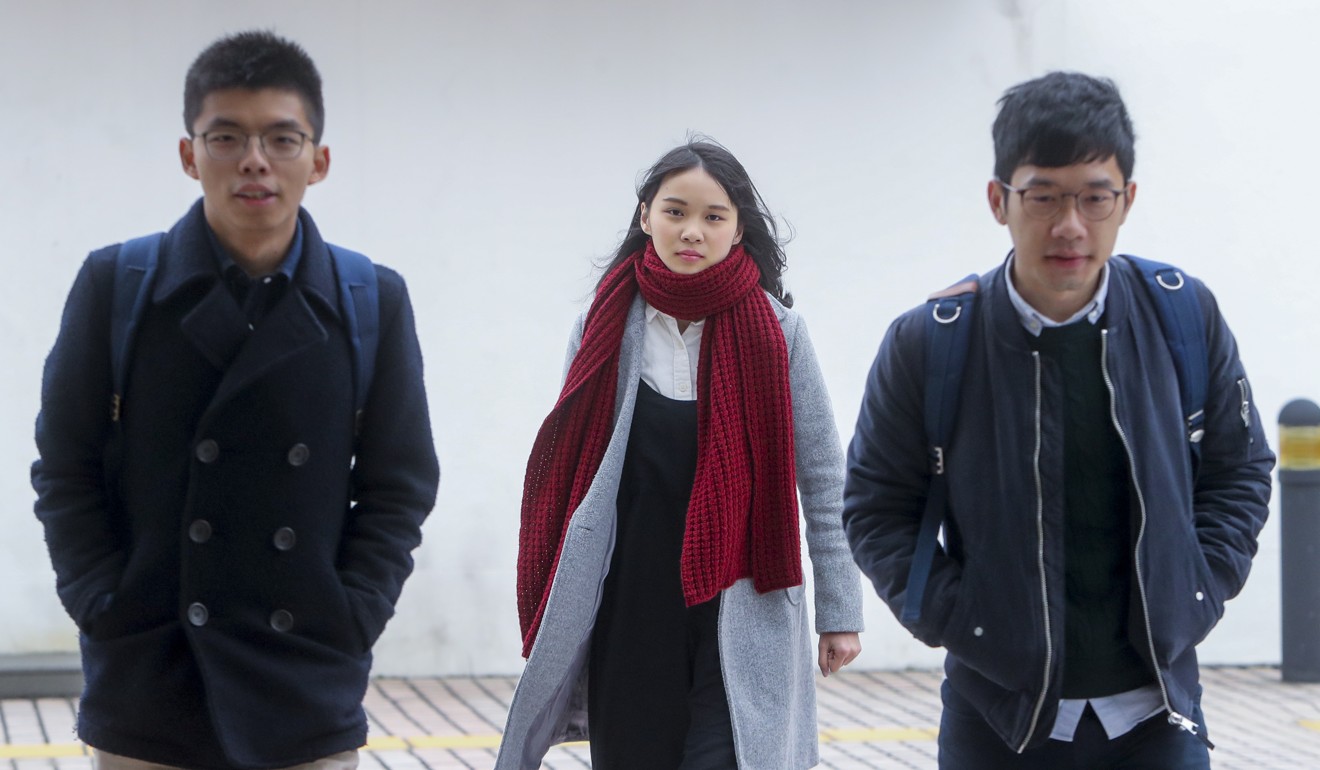
Thus, Wong donned a turquoise hoodie with the words “braver together” and “Demosisto” on the back last week and stood at a street booth in the frenetic Causeway Bay shopping quarter to canvass support for Chow.
When news of Chow’s disqualification broke, political watchers said the decision was clearly targeted at Demosisto and in particular, Wong.
In the eyes of Beijing, [Joshua] Wong is threatening, especially since he is still so young.
“In the past, Martin Lee Chu-ming has been the most influential Hongkonger on the international stage,” Chinese University political scientist Ivan Choy Chi-keung said, referring to the 79-year-old founding chairman of the Hong Kong Democratic Party.
“The incumbent legislators are almost ‘faceless’ in the international world – and now the fame of Wong even exceeds Lee. In the eyes of Beijing, Wong is threatening, especially since he is still so young.”
Sociologist and co-founder of the Occupy movement Dr Chan Kin-man said the disqualification would further discredit the legislature in the eyes of Hong Kong’s youth. Lam’s government has tried to involve young people in policymaking so they feel they have a bigger stake in Hong Kong’s future.
“The pro-democracy bloc has been spending considerable effort in the legislature to drive constitutional development in Hong Kong,” Chan, who specialises in social movements, said.
“But now the young people would think otherwise as they are banned from expressing their views within the institution and can only vent their discontent via non-institutional channels.”
He said apart from some sporadic and perhaps violent protests in future, the sense of cynicism would likely grow among youngsters. He pointed to how the 2,000 or so people who turned up at a rally on Sunday to protest Chow’s disqualification were mostly middle-aged.
Choy added that the decision to ban Chow could also make youngsters feel more alienated from Beijing, while other analysts said Legco risked becoming an echo-chamber of like-minded people. Indeed, Legco is seen as an establishment institution by Beijing and not as a platform for the opposition.
Veteran China watcher Johnny Lau Yui-siu told the Post that mainland officials “hope to draw a line for incumbent lawmakers, as well as those aspiring to be legislators, on what they can advocate [for]”.
A dead end for Demosisto and youth politics?
At Demosisto’s launch in 2016, party leaders stopped short of calling for Hong Kong’s independence though they did say Hongkongers had a right to self-determination. This set them apart from three other localist groups formed in the wake of the Occupy protests, who expressed varying degrees of support for independence advocacy.
Like Demosisto, Youngspiration said it believed in a referendum on the city’s future. But it wanted it to be held in 2021 and indicated that all sorts of protests were acceptable to achieve their political goals. Hong Kong Indigenous stated that violence was inevitable in the battle to “defend the city’s values”, while the Hong Kong National Party said it would adopt “whatever effective means” available to advocate independence.
Edward Leung Tin-kei, the iconic leader of Hong Kong Indigenous, alongside Hong Kong National Party’s convenor Andy Chan Ho-tin were both banned from the 2016 Legco election because of their separatist calls.
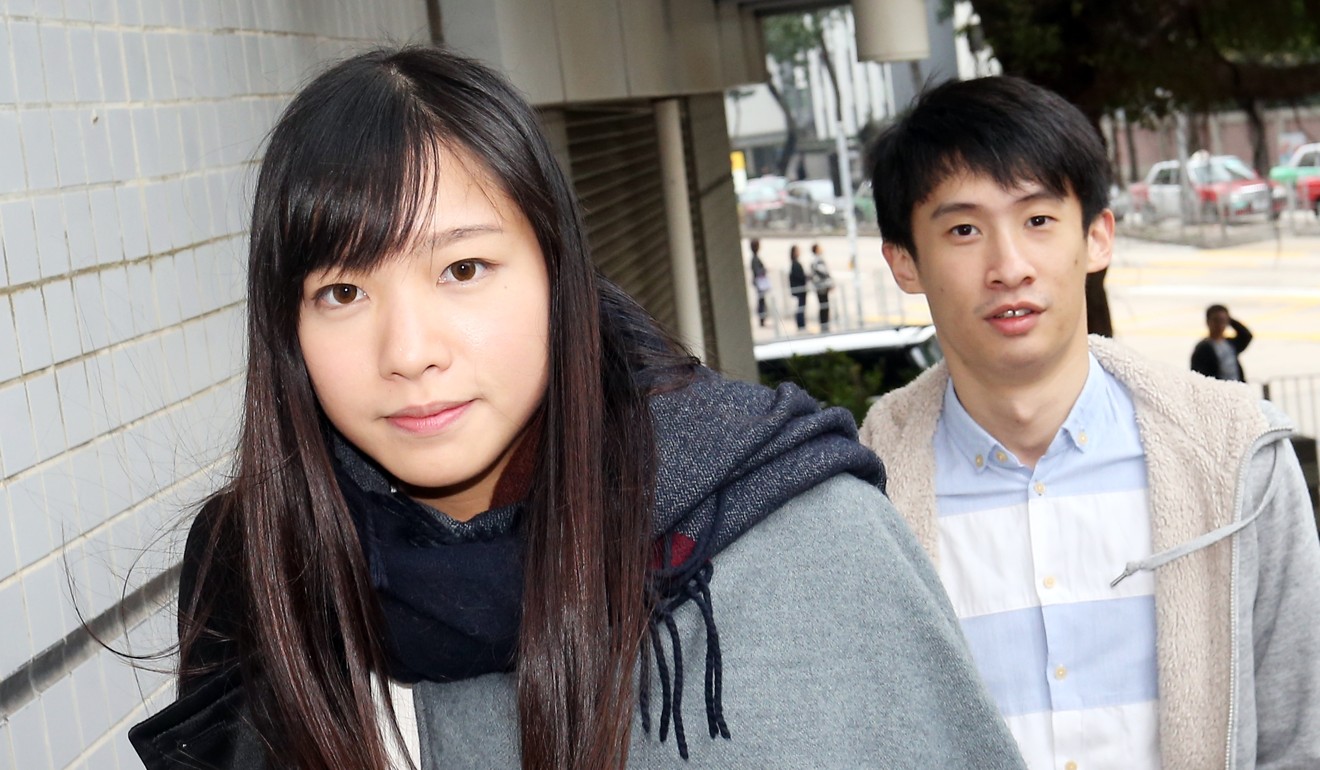
The Youngspiration duo, Sixtus Baggio Leung Chung-hang and Yau Wai-ching, set in motion the oath-taking saga after they were successfully elected to Legco in 2016. They swore allegiance to the “Hong Kong nation” and pronounced China as “Chee-na”, prompting a controversial interpretation of the Basic Law by the National People’s Congress Standing Committee. They were subsequently stripped of their seats.
Wong told the Post that Chow’s disqualification effectively meant that “all parties formed by young people since 2015 could no longer run in elections.” It also curtailed the political aspirations of “all Demosisto members and the entire younger generation”, and would hurt the development of youth-led political parties, he said.
“Pro-independence parties were barred from running two years ago, and now they target those who advocate self-determination. Would other mainstream pro-democracy parties also be banned in future?” he asked.
At the rally on Sunday, the bespectacled activist told the crowd: “We may no longer enter the legislature, but we pledge to be lifelong dissidents.”
He offered two future directions for the 21-month-old party: to continue lobbying the international community for support and to work at the local level to empower residents.
But Wong could not hide his worries over Demosisto’s future.
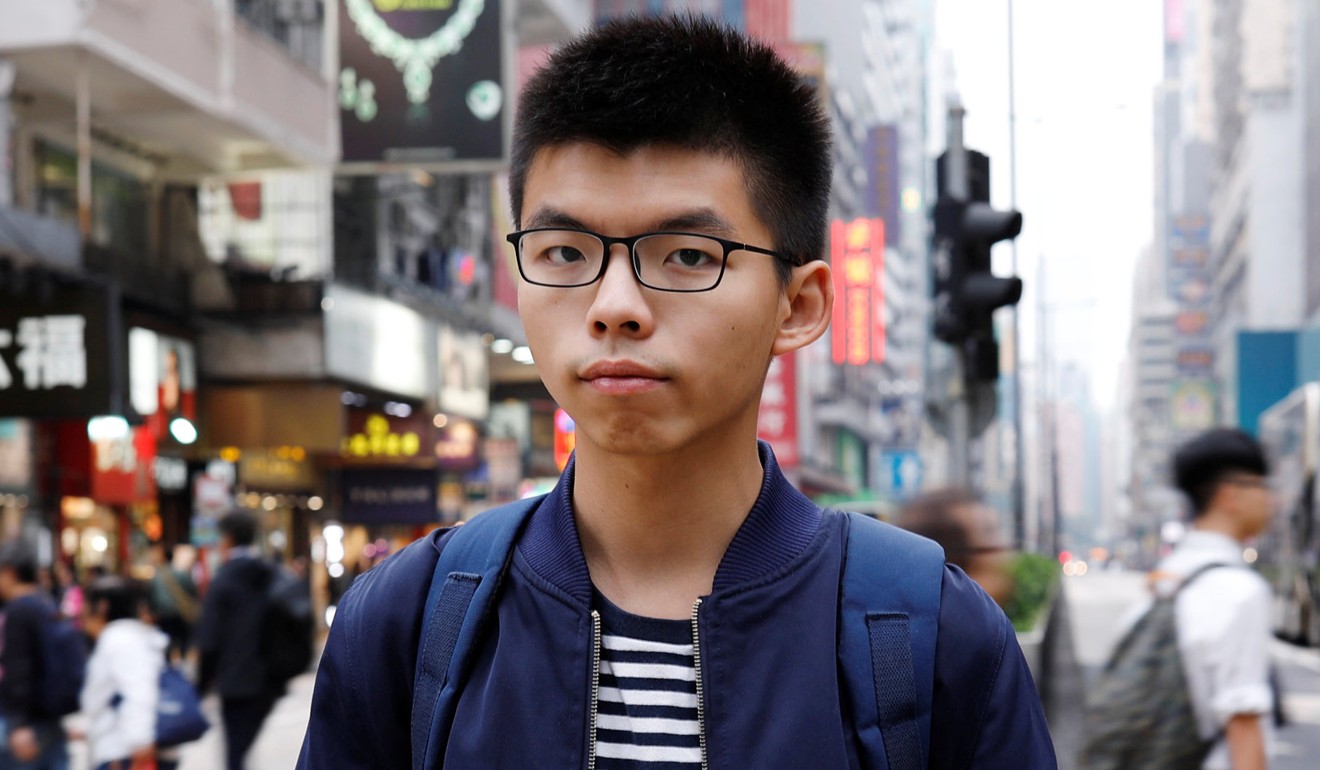
Over the past two years, the party had been fairly active in the southern district. They had opposed a plan to build a huge hotel in South Horizons, a private residential estate, which they feared would disrupt the community, and organised a petition among residents to stop a public housing estate mall in Tin Wan from being redeveloped into an international school.
“A lot of our young members, who are less high profile in politics, have been putting in a lot of effort into community work,” Wong said.
He feared the government would also bar Demosisto members from contesting the 2019 election for seats in the 18 District Councils, which scrutinise government funding and coordinate community initiatives.
“How can one serve the community full-time when he or she could not secure a monthly income of HK$12,000 despite their passion?” Wong asked, saying that if the party’s candidates were unsuccessful, they would lose a source of funding for their party operations and community work.
Democratic Party vice-chairman Lo Kin-hei, a district councillor for six years, said Wong was right to get his party to focus on community-level work.
“As you spend more time serving the residents and building networks, the number of pro-democracy supporters would really grow,” he said.
But if Demosisto was banned from council elections, Lo suggested the party try to maintain influence through partnering with allies.
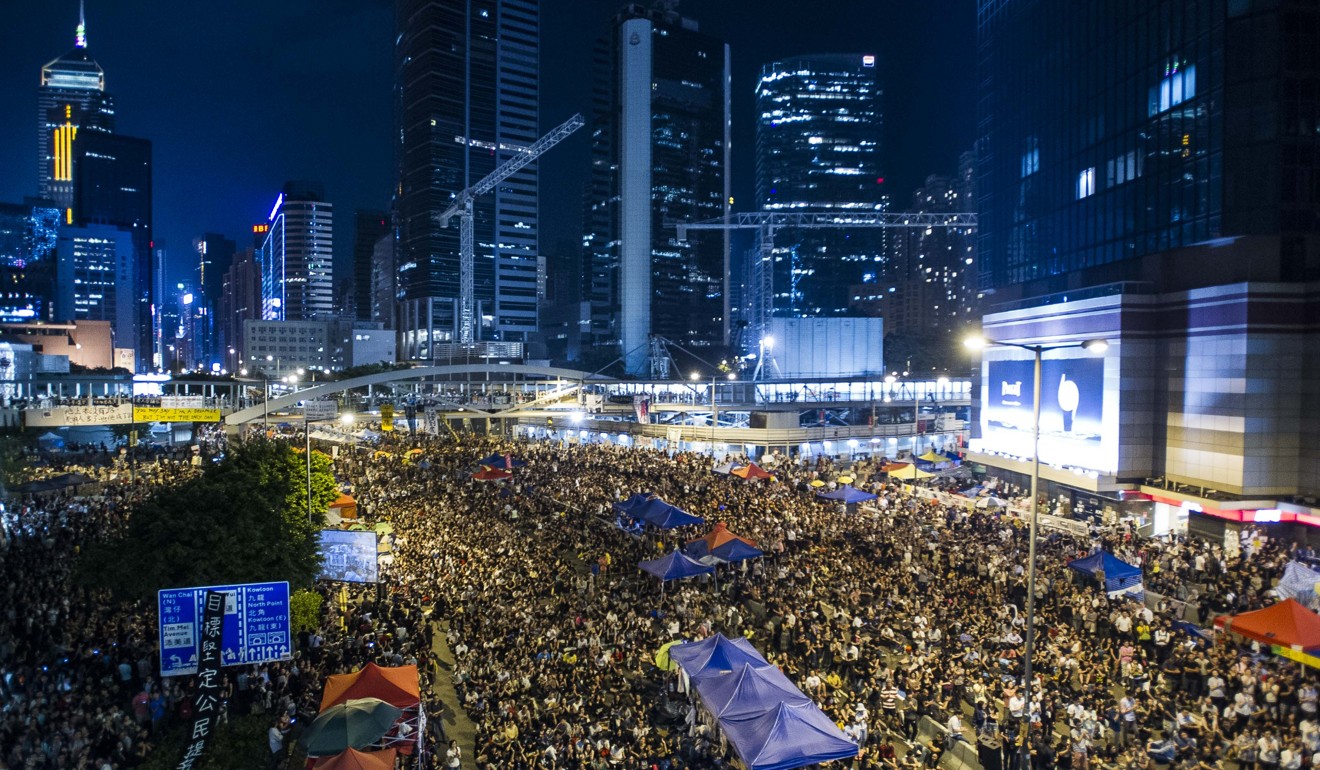
A shifting “red line”?
Last July, after President Xi Jinping inaugurated the new government led by Lam, he gave a speech where he warned Hongkongers to not cross the “red line” of threatening China’s sovereignty.
That phrase has since been used to describe the limits to political autonomy imposed by Beijing on Hong Kong under the “one country, two systems” governance model.
While pan-democrats had overcome their internal divisions to coordinate strategies for the March 11 by-election, several commentators said continued unity was not guaranteed in light of the red line established by Chow’s disqualification.
In fact, it could further divide and splinter the opposition.
Political scientist Dr Ma Ngok of Chinese University cited a journal article by political studies scholars Jennifer Gandhi and Ellen Lust-Okar that pointed to how authoritarian regimes had divided the opposition by selectively barring some of them from elections, as it would fuel suspicion and jealousy among them.
“The red line could be moved anytime. The opposition would have to guess where the red line is set and be forced to adjust themselves according to the game rules set by the government. It would be very divisive,” he warned.
“For instance, some groups might challenge the motive of those who still run for the ‘unfair’ elections, while some might query why they are banned but not others.”
There will surely be some youngsters going to extremes in the short term, but most would know the radical routes have no future
Lau Siu-kai, vice-chairman of a semi-official think tank based in Beijing, said the central government wanted to make clear the political realities of “one country, two systems”, and therefore public opinion and the impact on the by-election results – with some saying that the opposition would now garner more sympathy votes – were not taken into account.
He expressed belief that the clear red line – banning from elections those who expressed pro-independence sentiments – would reduce polarisation in Hong Kong politics in the long run.
“There will surely be some youngsters going to extremes in the short term, but most would know the radical routes have no future,” Lau said.
“I think most people in Hong Kong tend to be more conservative, more focused on stability and maintaining rather good relationships with the central government.”
But Wong and Law remained undeterred, saying that self-determination was still a core belief of their party.
“Our influence will not die off but increase as we work outside the legislature,” Wong said.
Law backed him up with a comment directed at the government.
“We would come up with ways to strengthen our influence on the streets, and make you regret the decision you made today.”
Additional reporting by Kimmy Chung